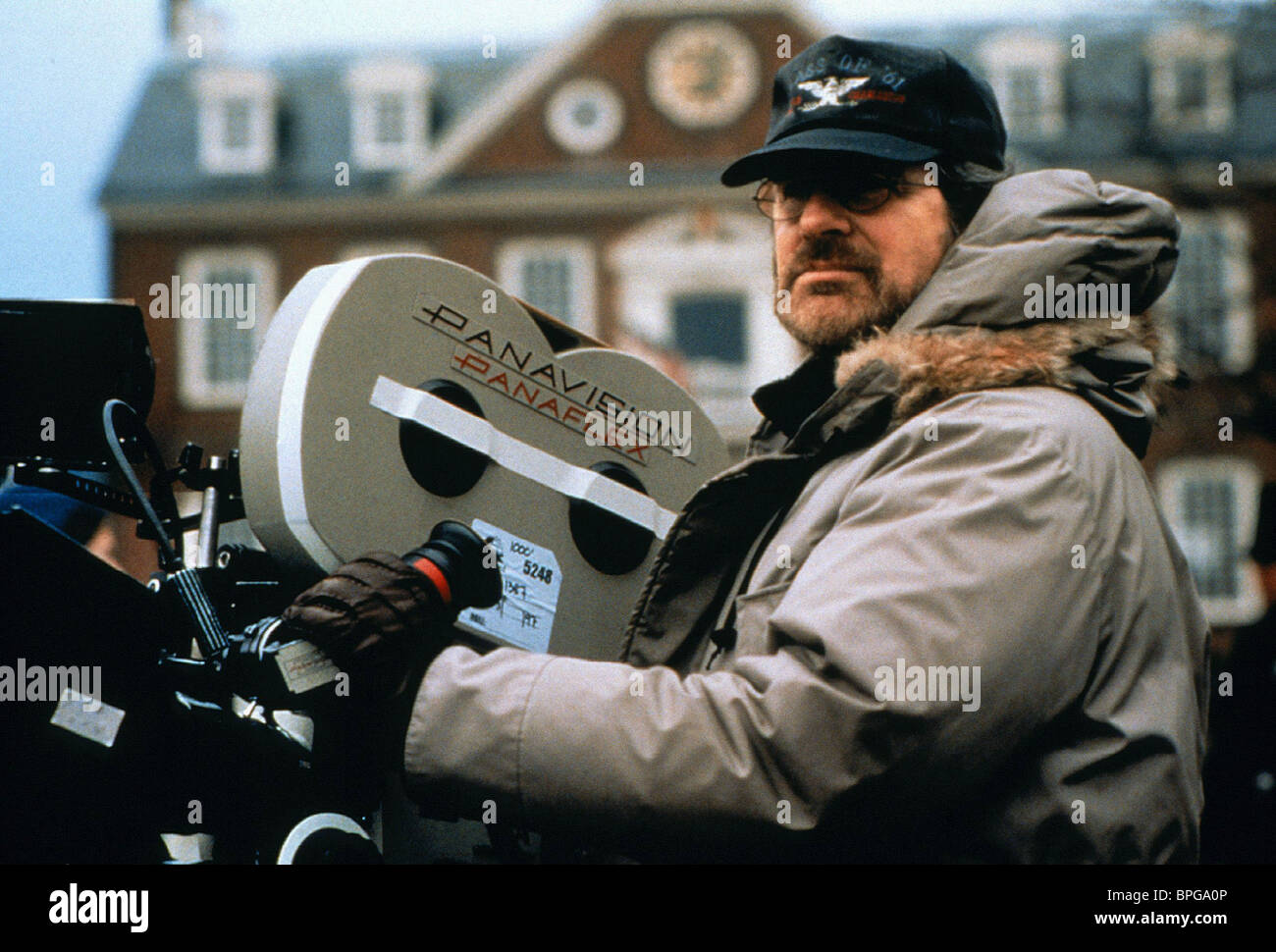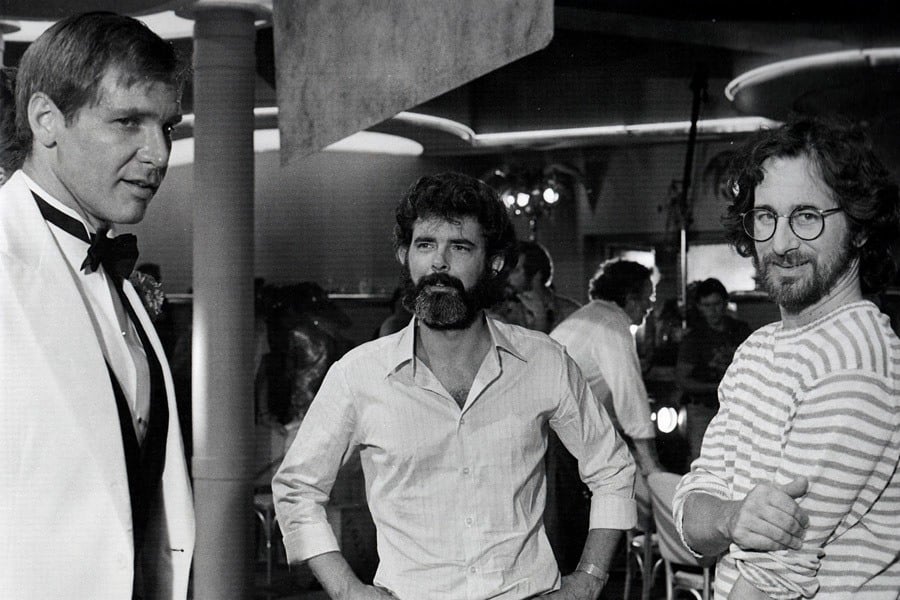← Back to Reviews
in
Spielberg
HBO presented a pretentious and overlong look at the life and career of, arguably, cinema's greatest storyteller, simply titled Spielberg. I wish the simplicity of the title had been employed in the mounting of this 2017 documentary.

The documentary opens promisingly as Spielberg talks about the film that was his greatest influence in becoming a filmmaker, Lawrence of Arabia and how it almost kept him from pursuing his dream because he felt the film set an impossibly high bar.

We get the standard overview of Spielberg's humble beginnings as a nerdy Jewish kid who was bullied at school and embarrassed about being Jewish and how this motivated his beginnings as a teenage filmmaker. It was nice to be reminded that, like a lot of great directors, Spielberg got his start in television and that his first official assignment was directing the legendary Joan Crawford in the premiere episode of an NBC anthology series called Night Gallery. I was impressed that the story did not gloss over the impact of Duel, the 90 minute movie of the week that put Spielberg on the map, which he said was inspired by the bullying he experienced in high school.

I really enjoyed the look at the rise of fellow directors coming up at the same time like Martin Scorsese, George Lucas, Francis Ford Coppola, and Brian DePalma, who become sort of a directors' boys club, keeping each other informed of what they were doing and soliciting opinions from each other about their work.

What this documentary does nail is how telling a pertinent story was at the genesis of all of Spielberg's work and where most of his stories came from. The breakup of his parents'marriage when he was a teenager was actually where the idea for films like ET: The Extra Terrestrial and Close Encounters of the Third Kind, films whose basis was a family self-destructing. His anger about his belief that his father destroyed his family had a lot to do with Indiana Jones and the Last Crusade, Catch Me if You Canand War of the Worlds. As expected, Schindler's List was his therapy regarding his religion, his most personal film where he used the least flashiest film techniques and winning his first Oscar for his efforts.

His stories are also an extension of his political conscience and his respect for the law. I do wish this documentary had a little less footage from Spielberg's finished work which we are all familiar with. One of my favorite scenes here was when Liam Neesom revealed how Spielberg's direction of one small scene in Schindler's List almost motivated him to walk off the film. I wish there had been more of that. I also wish we had a little more insight into Spielberg bombs like Hook and The Terminal, which were barely mentioned.

In addition to the above mentioned directors, commentary is also provided by long time Spielberg associates Frank Marshall, Kathleen Kennedy, David Geffen, Jeffrey Katzenberg, John Williams, writers like Tony Kirschner and film critic Janet Maslin. It's a wonderful overview of the director's incredible career, I just wish it had been a little more intimate and a little more economical.
HBO presented a pretentious and overlong look at the life and career of, arguably, cinema's greatest storyteller, simply titled Spielberg. I wish the simplicity of the title had been employed in the mounting of this 2017 documentary.

The documentary opens promisingly as Spielberg talks about the film that was his greatest influence in becoming a filmmaker, Lawrence of Arabia and how it almost kept him from pursuing his dream because he felt the film set an impossibly high bar.

We get the standard overview of Spielberg's humble beginnings as a nerdy Jewish kid who was bullied at school and embarrassed about being Jewish and how this motivated his beginnings as a teenage filmmaker. It was nice to be reminded that, like a lot of great directors, Spielberg got his start in television and that his first official assignment was directing the legendary Joan Crawford in the premiere episode of an NBC anthology series called Night Gallery. I was impressed that the story did not gloss over the impact of Duel, the 90 minute movie of the week that put Spielberg on the map, which he said was inspired by the bullying he experienced in high school.

I really enjoyed the look at the rise of fellow directors coming up at the same time like Martin Scorsese, George Lucas, Francis Ford Coppola, and Brian DePalma, who become sort of a directors' boys club, keeping each other informed of what they were doing and soliciting opinions from each other about their work.

What this documentary does nail is how telling a pertinent story was at the genesis of all of Spielberg's work and where most of his stories came from. The breakup of his parents'marriage when he was a teenager was actually where the idea for films like ET: The Extra Terrestrial and Close Encounters of the Third Kind, films whose basis was a family self-destructing. His anger about his belief that his father destroyed his family had a lot to do with Indiana Jones and the Last Crusade, Catch Me if You Canand War of the Worlds. As expected, Schindler's List was his therapy regarding his religion, his most personal film where he used the least flashiest film techniques and winning his first Oscar for his efforts.

His stories are also an extension of his political conscience and his respect for the law. I do wish this documentary had a little less footage from Spielberg's finished work which we are all familiar with. One of my favorite scenes here was when Liam Neesom revealed how Spielberg's direction of one small scene in Schindler's List almost motivated him to walk off the film. I wish there had been more of that. I also wish we had a little more insight into Spielberg bombs like Hook and The Terminal, which were barely mentioned.
In addition to the above mentioned directors, commentary is also provided by long time Spielberg associates Frank Marshall, Kathleen Kennedy, David Geffen, Jeffrey Katzenberg, John Williams, writers like Tony Kirschner and film critic Janet Maslin. It's a wonderful overview of the director's incredible career, I just wish it had been a little more intimate and a little more economical.
